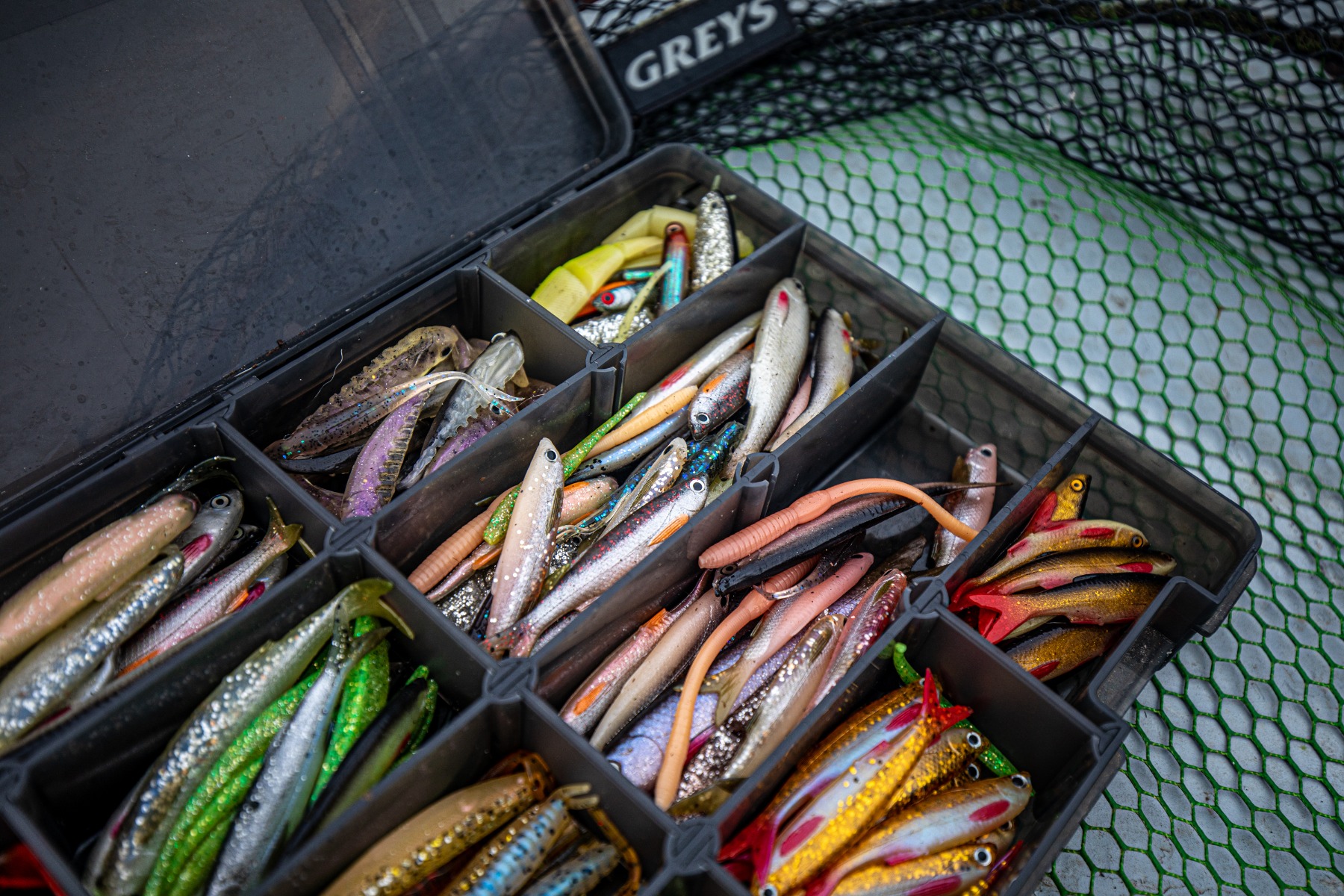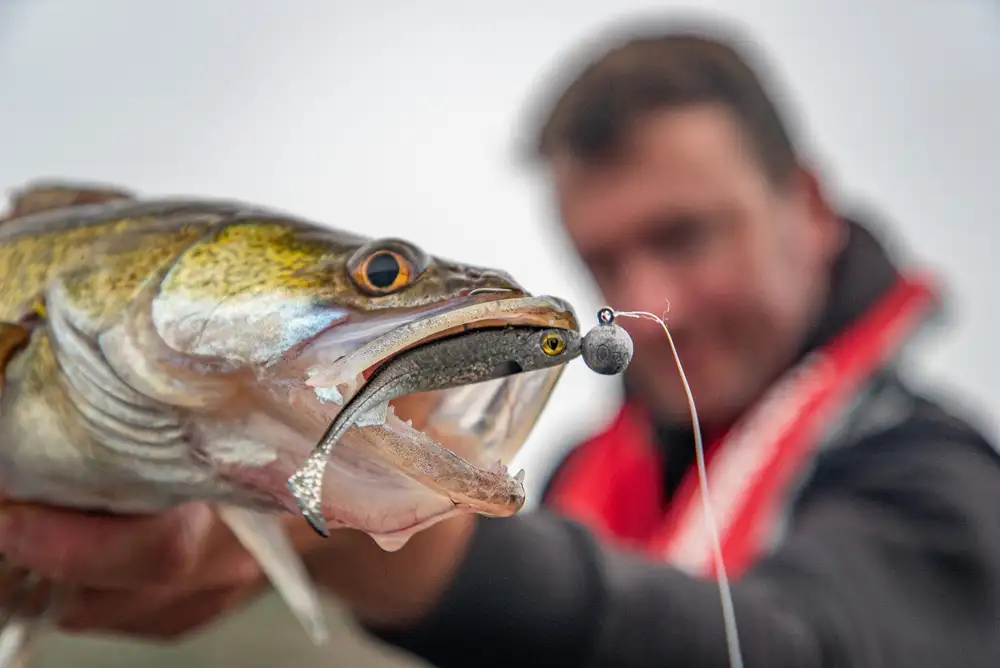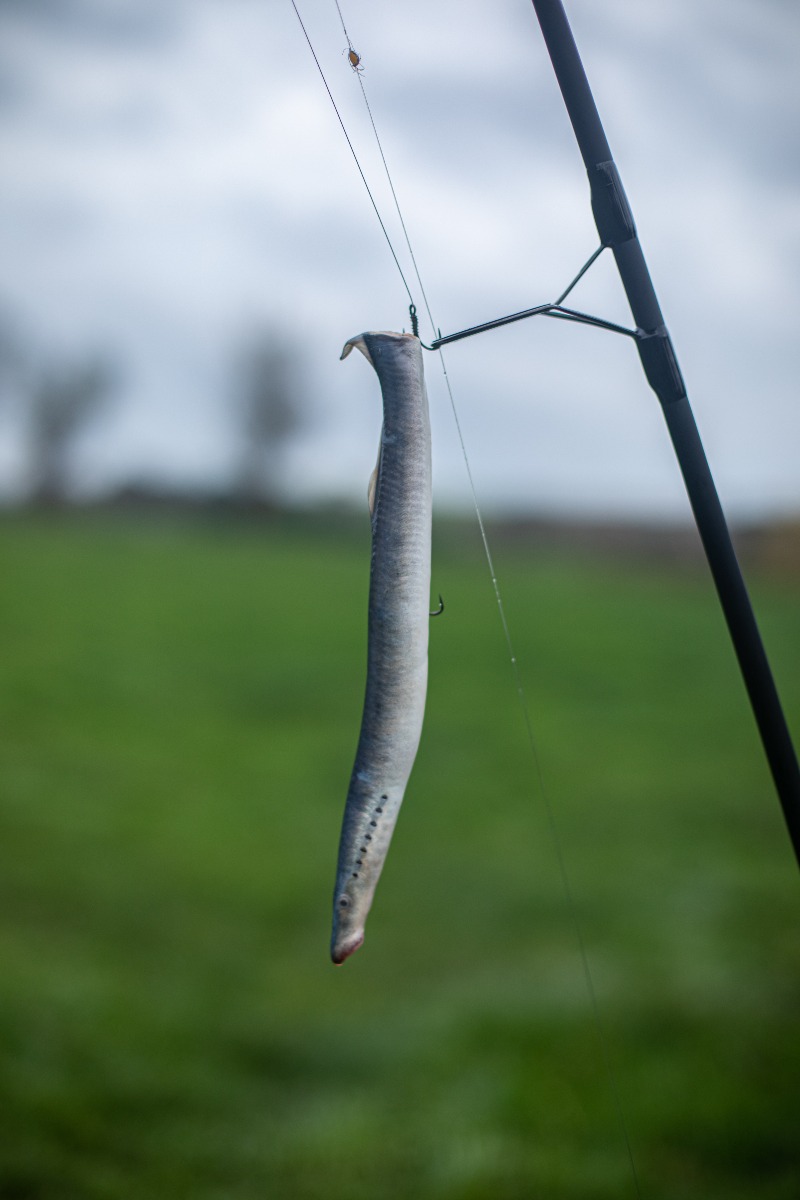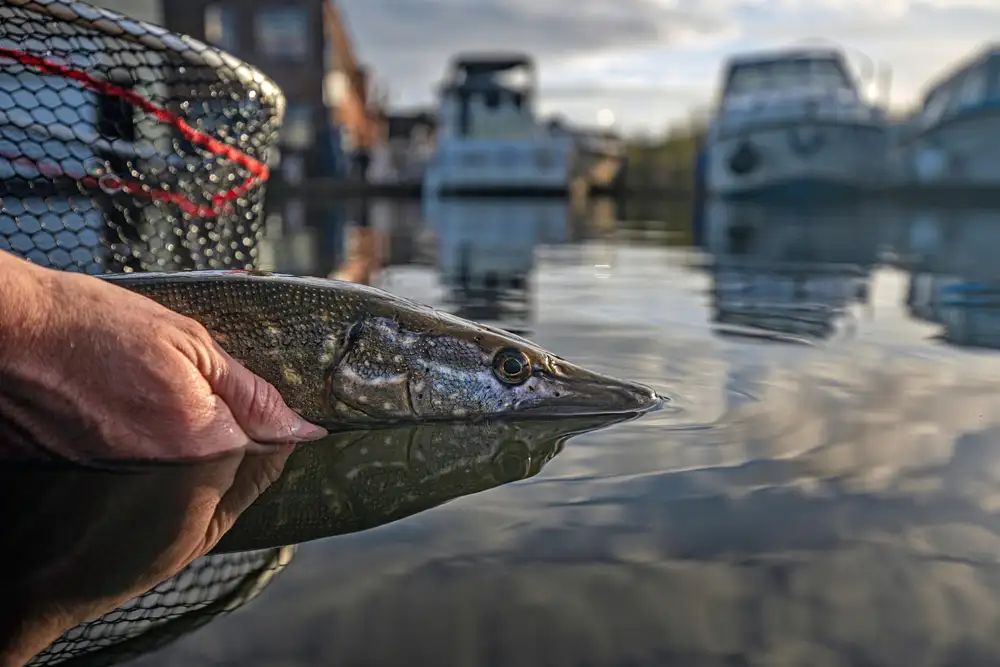This is a demo store. No orders will be fulfilled.
What's More Effective - Bait Fishing or Artificial Lures?
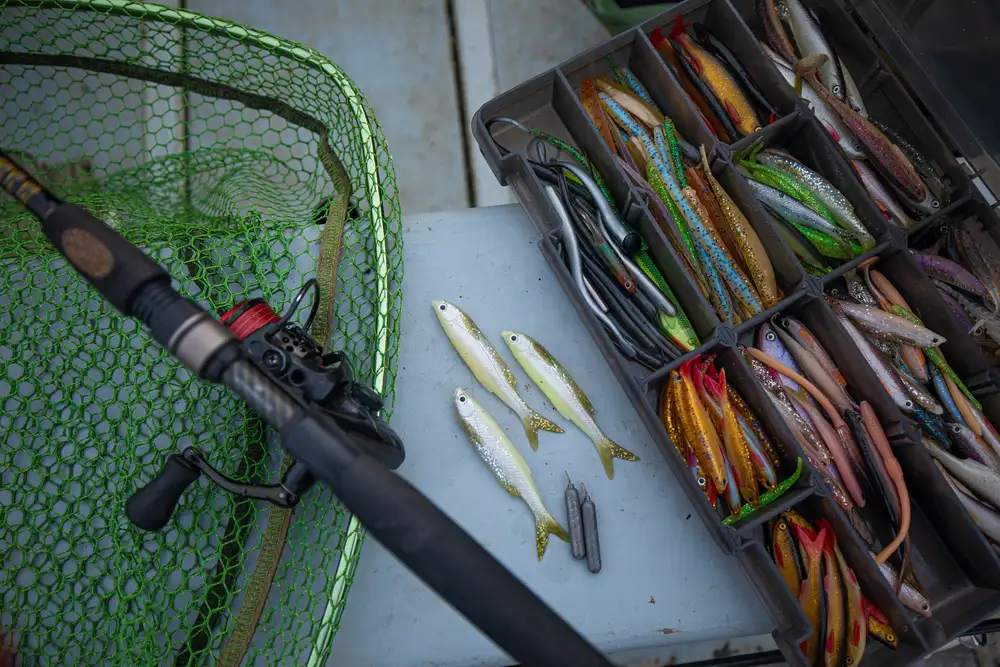
A very popular question amongst anglers across the disciplines is what’s the best baiting choice: real bait or artificial lures? For predator and sea fishing in particular, it can really be a tough decision as there is no one-size-fits all answer!
In this guide, we aim to list all the negatives and positives to the all the choices so you can tally up which bait choice is best for you!
What are Artificial Lures?
A dominant style of recreational angling, fishing with a lure is often seen in sea, predator, and fly fishing. The idea is to use a small, artificial object to tempt fish into biting. The shape is usually fish-shaped or look like an insect. Lures can be made from rubber, plastic, metal, or a mix of such materials and they often provide a combination of movements, vibrations, colours, and shiny reflections to entice fish to bite.
Types of Artificial Lures
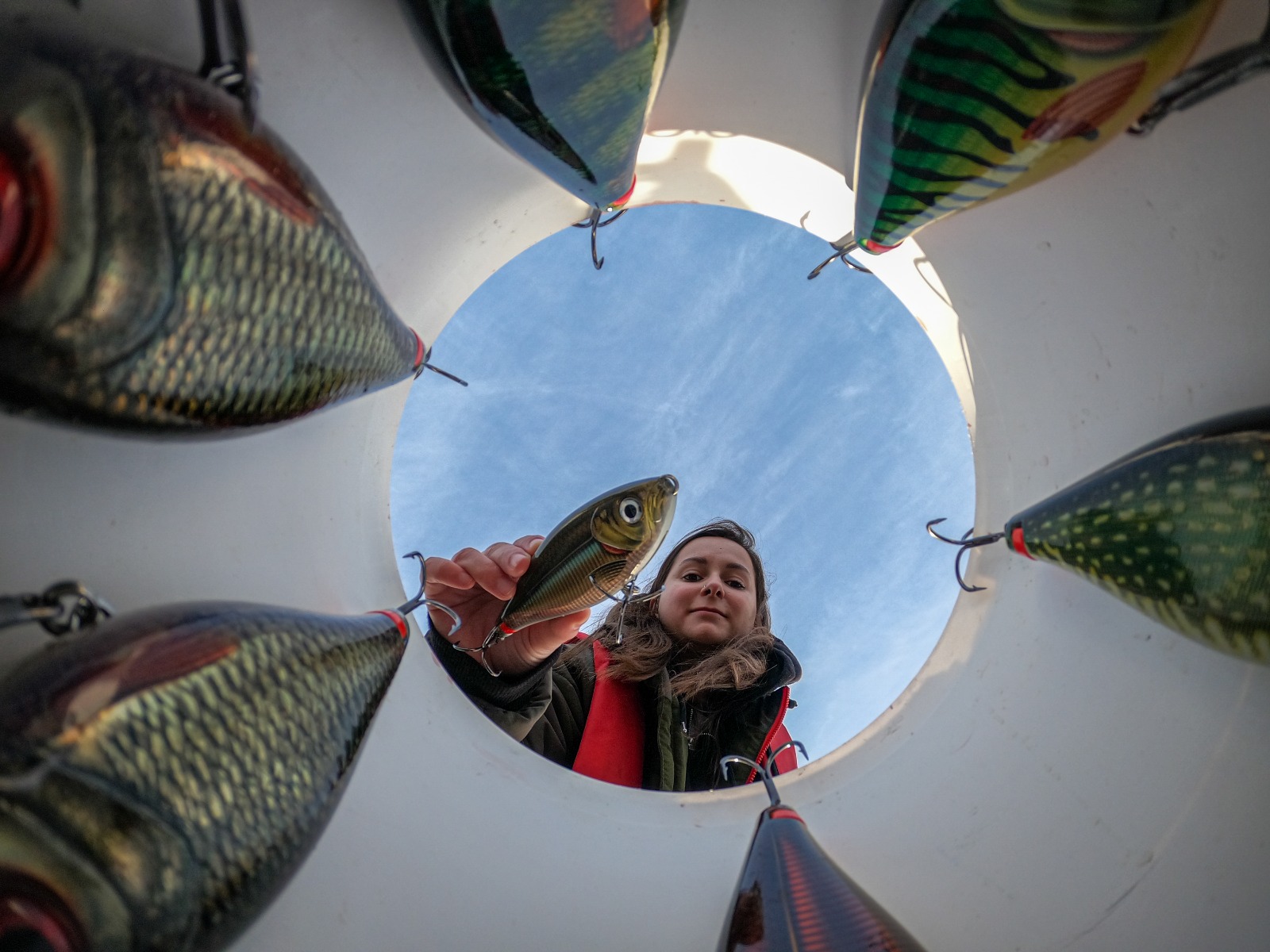
Like live bait, there are many different types of artificial lures and if you manage to choose the right type of lure such as something that mimics the actions of the live bait your target fish tends to eat, then you’ll be able to reel in plenty of fish!
-
Artificial flies
-
Decoy fish
-
LED lures
-
Spinner bait
-
Swim bait
-
Spoon lures
-
Floating & Diving lures
-
Sinking lures
-
Fly lures
-
Crankbaits
-
Plugs
See more on lure types here.
The Benefits of Fishing with Lures
After establishing what lures are and the different types, why do anglers choose them over baits?
+ Reusable Unlike most fresh and deadbaits, lures are a one-time purchase with plenty of uses in them (if you use the right type with the right fish).
+ Clean If you are not a fan of the blood and guts that comes with using deadbaits for predator fishing, lures are an instant tick. Lures are also less dirty and smelly, so great for newcomers!
+ Convenience For those that don’t have time to catch or purchase live baits, having a range of lures in your tackle box can still get you some bites.
+ Storage Lures don’t require special storage like fresh baits that need to be kept cool and contained in bait boxes. A lure can be easy to access for this reason.
+ Collection If you are a bit of a collector, having a lure and fly collection is certainly more fun than a favourite bait but be warned, it gets addictive!
+ Big Wins The use of large fish shapes lures can lead to bigger catches and fewer nuisance fish in the net.
+ Fish Care Due to the size of the lure, deep hooking is a rarity so your target fish are safer and much easier to release.
+ Bait Fish Population A fake bait means less demand for bait fish and therefore giving baitfish on low numbers a chance to grow in population.
+ Productivity Due to its movement and mechanics, lures tend to cover more water in less time, adding more catching potential.
+ Fun With all the colours, imitations, and often sparkle, lures are great fun for all anglers, especially junior ones!
The Disadvantages of Fishing with Lures
When there are positives, there are also negatives, so let's look at the downside to using lures.
- Clutter Too much choice? Having so many possible lures that a target fish could like means plenty of time and money wasted on trial and error. The number of options can be overwhelming for beginners.
- Challenging Lure fishing is not too simple for the new angler and it takes skill to retrieve your line in a way that makes the movement of the lure as close to the baitfish as possible. In addition, with no scent, it can be hard to entice fish hiding.
- Physical In order to mimic baitfish behaviour, anglers need to constantly move the lure by reeling the line in and recasting.
- Teeth If you are targeting predators, your expensive lures may be torn or damaged to the teeth of the fish, especially those with strong jaws.
- Pricey Even though you save the cost of buying bait that you cannot take home, artificial lure collections are not cheap either.
- Loss Losing some maggots on the end of the line isn’t the same as your favourite lure getting snagged in weeds, branches, or in between some rocks.
- Night Fishing Lures are for daylight use only, forget using them in the murky water or at night time.
When to Use Fishing Lures
To give lures the best chance of reeling you in some fish, like with anything in fishing, it depends on the conditions and fish. It is ideal to use lures when…
-
The water is nice and clear
-
The weather is warmer
-
During daylight
-
Dealing with aggressive, predatory fish
-
Lots of small, non-target fish are present
-
Practicing Catch & Release
Fishing with Bait
Natural baits are living or dead creatures that are used to attract fish to your hook but baits can also include ingredients combine to replicate certain scents that many coarse fish have grown to love such as boilies and pellets.
Types of Fishing Baits
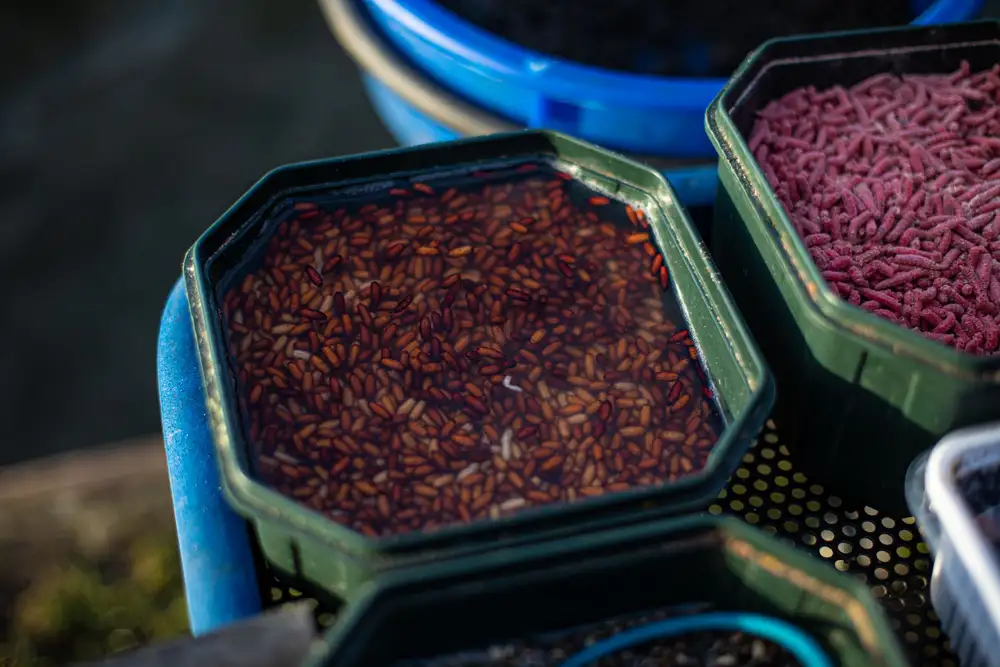
Depending on your fishing tactics and style, you are going to come across plenty of bait choices and types. Narrowing down what bait to use for what species, at what venue during what season is just part of the challenge!
Freshwater Fishing Baits |
Saltwater Fishing Baits |
|
|
The Advantages of Fishing with Bait
+ Highly Effective Bait is more or less food for fish so carnivore fish will be attracted from far and wide to the look and scent of whatever you are casting on the end of your line.
+ Simple Bait fishing teaches new anglers the absolute basics of fishing, including what food items fish prefer to eat and where to retrieve that type of bait. To use bait means less demand from the angler, simply cast out the bait, set the rod down and wait for a bite.
+ Educational Having to find, gather, or catch your own bait rather than buying it from a bait fishing shop can teach some important lessons on how prey fish behave.
+ Attractiveness Although it can be frustrating, baits tend to appeal to a wide range of fish species, increasing your chances of netting a fish.
+ Low-Cost Most baits are often cheaper than lures, especially when collecting lures. It is even cheaper to collect your own!
The Disadvantages of Fishing with Bait
While baits have lots of attraction and benefits they also have downsides to consider.
- Messy Unlike lures there is a strong scent and mess from baits that may take some getting used to in regards to preparing your hands, clothing and smelly gear.
- Storage Fresh baits will need special care whether its in a maggot bait box or in a cool box.
- Bait Shopping You need to pick up bait for nearly every session you plan on going to, this means for trips and spending in your local angling bait shop which can be costly.
- Baitfish Population Collecting your own bait fish may be low in cost but it also adds to the demands of certain species due to commercial fishing.
- Research To avoid wasting your one-use baits on the wrong fish, you need to do plenty of research before a fishing trip, especially for new venues and new target fish.
- Nuisance Fish Although attracting lots of fish can be fun, wasting expensive bait on small fish can be frustrating.
- Deep Hooking Due to its high attractiveness, fish will lunge at baits and end up getting deep hooks or swallowing the bait and hook which can be a problem when it comes to returning the fish.
- Planning If you baitfish, you cannot go on those spontaneous fishing trips as it requires a trip to the bait shop or collecting your own bait before the session can truly kick off.
Best Time to Fish with Bait
Just like with artificial lures, the effectiveness of bait can depend on when it's used. Generally speaking, baits find success when…
-
Water is muddy, murky, or discoloured
-
You are a beginner angler looking to catch any fish
-
Fishing on keep venues
-
Cold climates
-
Night fishing
-
Targeting omnivorous species (carp & coarse fish)
